Meal-Kit Packaging Adds an Ingredient of Sustainability
Subscription-based meal kit providers touting convenience and healthiness now toss in a pinch of sustainability. Does the packaging stand up to scrutiny, though?
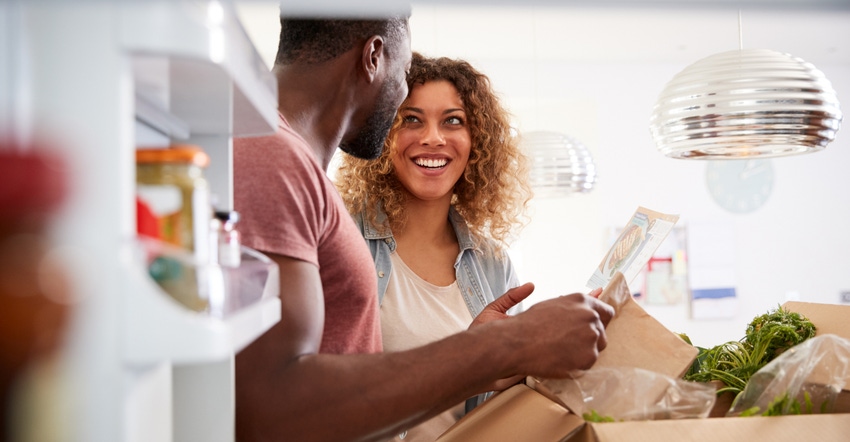
I hadn’t seen my friends Mark and Sherry for a year due to COVID-19 and my own schedule demands. So, when I found out there was a “good-bye” party for them because they were moving to Florida, my wife and I decided to go. We pulled up in our car, and I saw a guy stepping out of his that looked like Mark — but a much smaller, healthier version. Then Sherry stepped out looking smashing. I said, “Hey guys, is that you? What happened?” It turns out, they went on Jenny Craig and each lost nearly 50 pounds. How did they do it? They simply signed up and subscribed.
My friends are shining examples of a trend sweeping through the consumer landscape. Rather than running back and forth to a grocery store, they let their service do the shopping and preparing for them. It’s more convenient — and healthier. Services like the one they use, Jenny Craig, have been around for years. During the pandemic, meal subscriptions really took off.
According to the Business of Business, “Americans spent $100 million on meal kits in the month ending April 11, doubling sales from 2019, according to Nielsen via WSJ. Earnest Research shows online meal-kits growing 63% over the same period. The industry is cautiously predicted by Grocery Dive to hit 20 billion by 2027 and see 13% annual growth.”
Meal-kit services initially met with industry skepticism by leading sources such as Forbes which called them “DOA” back in 2018. In fact, here’s what they said:
“A recent study conducted on the amount of package waste generated by meal kits is indicative of the growing backlash against the industry. Meal kits are more time consuming than they appear, the subscription model is stone age and restrictive, and the taste of the meals suffer from extreme variance.”
When you think of wildly popular services like Netflix, Hulu, Jenny Craig, Amazon Prime, Chewy, and countless others, the subscription model seems more like the future than the stone age.
What does this mean for packaging? Let’s look at a few examples of how meal kits are trending.
Yumble: Simple sustainability focuses on easy recycling.
We start with Yumble. The inspiration of New Jersey mom Joanna Parker, Yumble offers healthy pre-made meals for kids delivered via a subscription service. The brand makes sustainability a priority. To quote from their website, “Meal trays are made from PP #5 plastic and can be recycled with standard curbside recycling, along with the paper sleeves on each meal. The shipping box is fully recyclable and may be recycled with regular paper.”
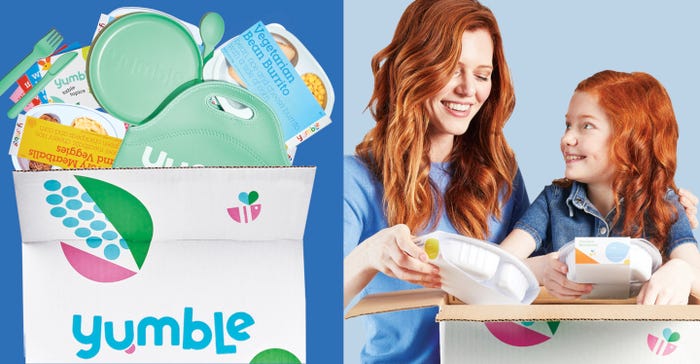
Speaking of the shipping box, the design is truly engaging. Fun typography and simple graphics of veggies against a clean white background. Inside are individual meal packs, each with its own unique graphic treatment. Each order contains a variety of meals, along with games and other activities to make eating healthy a kid-friendly event. The packaging speaks to the environmental concern of the parent. Overall a winner. No wonder Bethany Frankel backed this brand on Shark Tank.
Soylent: “Let us take a few things off your plate.”
Soylent is another player in the food-subscription marathon. This brand promotes its nutritional value as a key selling point. Producing the protein in Soylent involves much less CO2 impact than equivalent products. The company promotes an ethical brand message based on Soylent’s outreach to the world’s undernourished populations.
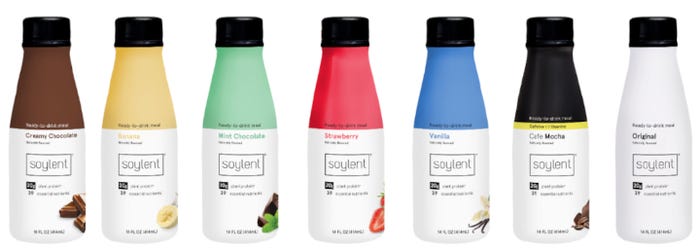
The packaging, high-density polyethylene (HDPE) bottles, which are commonly recycled in the US along with polyethylene terephthalate (PET), and its website recommends that consumers be responsible about recycling. In other words, it cares, and is open about its sustainable positioning. That said, the products are still in a “plastic bottle.”
Speaking of that, the design is sleek and contemporary as befits a whole new way to get nutrition. It looks like the future. (But anyone who remembers the 1973 movie Soylent Green might pause before consuming these products, just sayin’.)
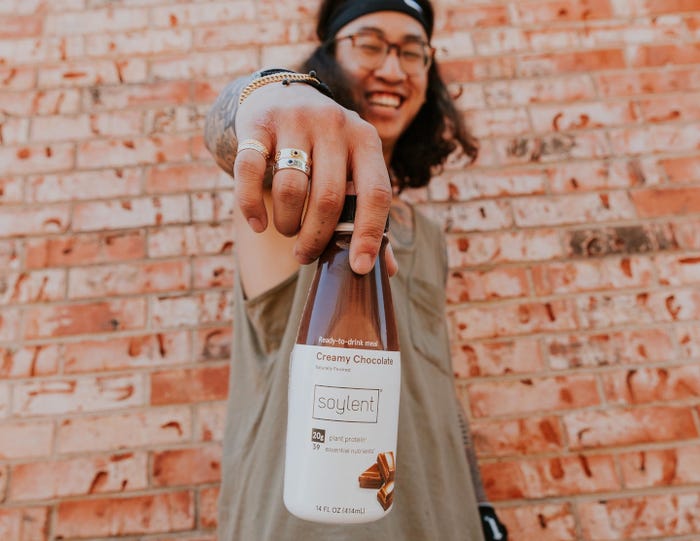
Jenny Craig: The champs do it best.
The Jenny Craig meal plans work, as my friends Mark and Sherry can attest. The brand has been in the subscription meal business for 35 years. Although their plan options are anywhere from $12.99 to $23+ a day, they have a dedicated following.
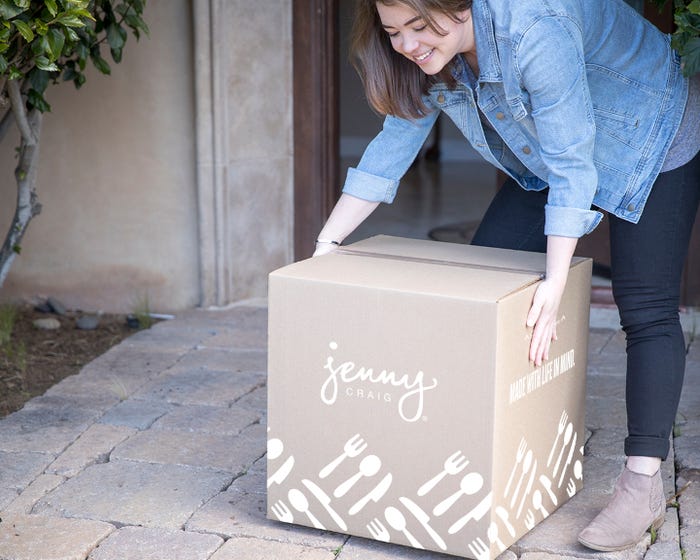
With the emphasis on sustainability, Jenny Craig recently announced its new eco-friendly packaging. The delivery box features Green Cell Foam insulation that dissolves in water, and the outer delivery box is 30% smaller and completely recyclable. The aesthetic is clean, tasteful, and the logo is given the hero treatment it deserves.
Reality check.
All this sounds great, but the sustainable claims being made are hard to calculate. When you compare the strain packaging and delivery trucks put on the environment — against countless individual consumers going to and from retail stores, buying and wasting food, the calculus gets mind boggling. Also, what about the recent waves of supply chain shortages? When the waves ebb and flow, do subscription services hold up, or are they impacted the way everything else is?
Food for thought.
About the Author(s)
You May Also Like




